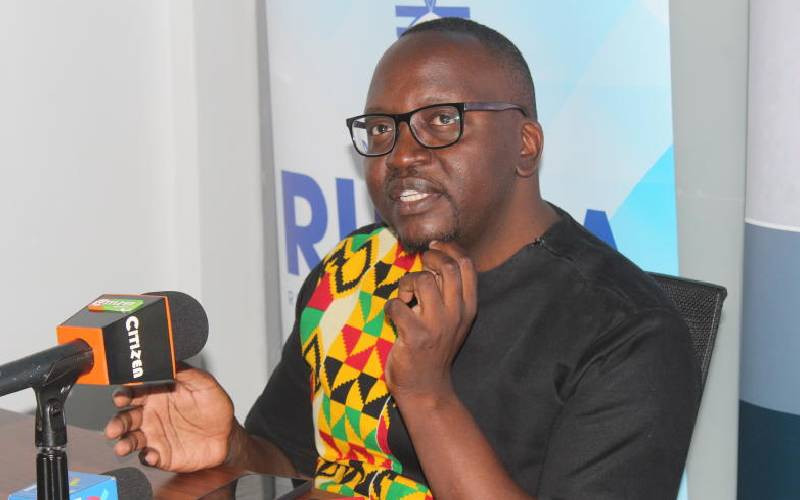
The Covid-19 pandemic has directed our collective focus on all things medical. In the process we have been compelled to confront the good, the bad and the ugly of our health system.
One of the first negative impacts of the pandemic, even before it arrived in our country, was the strained medical supplies situation that started to evolve, affecting availability of many life-saving medicines. This revealed our over-dependence on pharmaceutical and medical device imports.
This shortage was experienced globally at the start of the pandemic, to a large extent because its epicentre at the time was Hubei Province, China, a global hub for pharmaceutical raw materials, then under locked down.
Here at home, we faced the inadequacy of our capacity to produce locally not just complex medicines, but simpler technologies like personal protective equipment (PPE).
There was also the self-induced shortage of essential medicines when the public scrambled to buy and hoard perceived coronavirus therapies. Never mind that this behaviour was led by online misinformation. Shortly thereafter, we had scandals in public procurement of PPE that revealed the gaps in governance of our public health institutions.
Next, we had a few sleepless nights having realised we have less than 500 critical care beds, and even less ventilators, but breathed a collective sigh of relief when the first and second waves did not overwhelm our capacity.
We have been forced to face plenty more sticky issues in our health sector, not necessarily Covid-19 related. The process of drug donations, import levies and tax waivers have been of interest to many of us lately.
Kenya enjoys good relationships with multilateral donors, who contribute a great deal to our heath programmes. In the recent ARV crisis, patients had started feeling the pinch of dwindling supplies. Now we have been forced to think about streamlining these relationships to ensure patients are never caught in the middle of the fuzzy fine print of agreements between government and donors.
In this unprecedented time, where we need to assess and approve novel therapies and vaccines in a timely manner, we have also realised some loopholes in the process of medicine regulation.
As strange as it sounds, we currently don’t have a board at the Pharmacy and Poisons Board. This missing oversight board is tasked by law with ensuring the country gets quality, safe, efficacious and cost-effective medicines and health technologies.
It is also during this time that health laws are undergoing radical amendments in Parliament, with professional associations asserting that they have not been consulted in the process, an alarming oversight.
In addition, there is the Kenya Food and Drugs Authority Bill at the National Assembly, and which seeks to lump food and medicines in the same regulatory basket.
We are forced to ask ourselves whether this is a suitable approach, considering that each of the two products needs specialised focus. The conceptual frameworks for the regulation of food and drugs are so divergent, they can never meet.
Medicines are inherently poisonous. The process of assuring safety of medicines is therefore premised on minimising harm. Further, their quantities must be controlled within very narrow ranges, sometimes even in microgrammes.
Foods, on the other hand, are inherently safe. To maintain this safety, we need to ensure they are not adulterated with harmful chemicals from poor farm and storage practices. The concept of efficacy does not arise with food. I have never heard anyone speaking of efficacious ugali.
Vaccines have been available to mankind from as early as 1000 AD, when the Chinese practiced variolation (inoculation of small-pox disease material into an open wound). Currently, however, there is increased interest in vaccines because of perceived rapid development of the Covid-19 vaccine and the new technology that carries it into our bodies.
Most vaccines contain weakened or inactive parts of a disease-causing organism that trick the body into mounting an immune response to the disease in question. Newer vaccines such as the current Covid-19 ones contain genetic instructions that cause the body to produce proteins (antigens) that will lead to a disease-specific immune response.
This technology has been in development for decades, and has come of age just in time. It represents a lot of promise for new vaccines and therapies for a range of diseases.
In a way, we can say that our health system has benefited from this pandemic-induced focus. We are now manufacturing our own face masks, assembling ventilators, have increased our critical care capacity, have built oxygen plants, are in the early days of drawing up protection policies to spur the growth of our local pharmaceutical manufacturing sector and have diversified our drug supply chains to prevent stock outs.
At the individual level we have benefited by growing our health literacy. Even though the pandemic has brought with it toxic misinformation, we can at least boast that each of us can now hold a conversation featuring terms like “flattening the curve”, “attack rate”, “positivity rate”, “PCR test”, “antibodies”, “adverse effects”, “viral mutation”, “immune response” and many more.
Let’s keep learning!
-Dr Daniella Munene, CEO of Pharmaceutical Society of Kenya
 The Standard Group Plc is a multi-media organization with investments in media platforms spanning newspaper print
operations, television, radio broadcasting, digital and online services. The Standard Group is recognized as a
leading multi-media house in Kenya with a key influence in matters of national and international interest.
The Standard Group Plc is a multi-media organization with investments in media platforms spanning newspaper print
operations, television, radio broadcasting, digital and online services. The Standard Group is recognized as a
leading multi-media house in Kenya with a key influence in matters of national and international interest.











